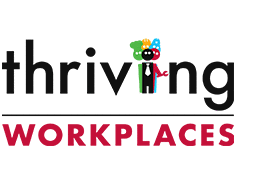23 Jul Six Reasons Why Flexible Working is an Amazing Free Employee Perk

Flexible working should be the default position for all employees, rather than it being up to individuals to request.
That is the call from Conservative MP Helen Whately, who introduced a flexible working bill in Parliament on earlier this year.
We know that having greater autonomy and control to manage our own workload around our increasingly complex life has wellbeing benefits.
For example, up to 20% of employees can have caring duties outside of work, often caring for children, elderly relatives, or even both, and flexible working significantly helps them juggle these responsibilities.
But what about the business benefits?
Companies that are perceived by their employees to encourage a healthy work/life balance will be getting a key business productivity boost because better employer/employee relationships, leads to more productive, high performing workers.
Although not every role lends itself to flexible working, because it must work for the business as well, here are six key benefits;
1. Employee Loyalty – in a competitive world you cannot afford to lose your experienced, high performing staff.
2. Flex Appeal – As well as retaining staff, offering a culture of flexibility will help you attract the best staff. Good staff value themselves so will steer towards the employers who treat them well.
3. It’s a Free Benefit – Provided you have the right kind of business, it will not cost you a penny. Wow a free perk for staff, what’s not to love!
4. Productivity – Presenteeism and burnout are insidious problems that may not be picked up until too late. Helping someone by letting them come and go earlier, or work from home, will help them stay more energised and productive. It will also reduce congestion, pollution and carbon emissions.
5. Sickness Absence – An obvious point, but greater wellbeing means less sickness.
6. Better Employee/employer Relationship – Some employers worry that flexible working will be abused. On the contrary, staff do not have to make excuses and skive off work to pick up their children if they are ill, or take a loved one to an appointment. There is much more emphasis now on management by objective and outcomes, rather than micro management. If relationships improve, productivity will improve.


